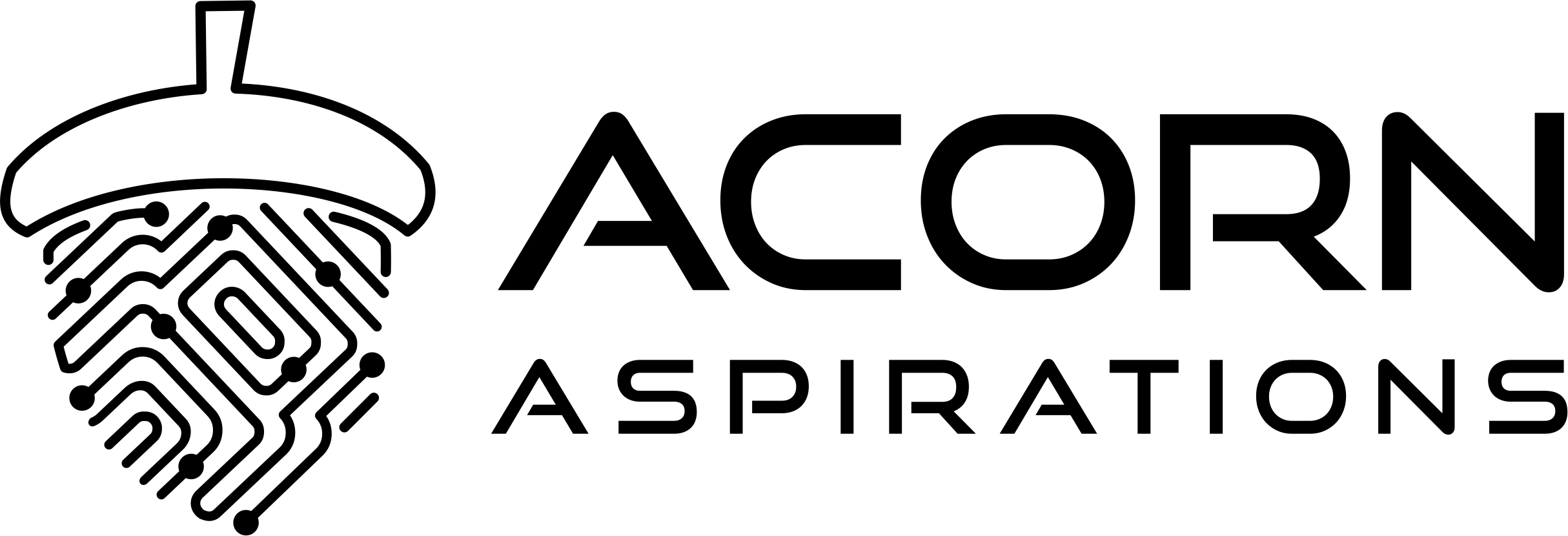On the 15th of May 2018, I attended the AI for Good Global Summit which was held in the ITU building in Geneva, Switzerland. This was one of the greatest opportunities I have had, and I was very 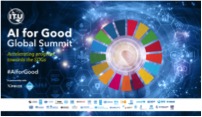 happy to share that with Elena Sinel, from Acorn Aspirations, who inspired me to get into technology from a young age.
happy to share that with Elena Sinel, from Acorn Aspirations, who inspired me to get into technology from a young age.
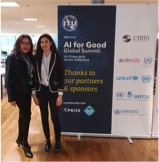
I was selected to attend the Summit as a representative for young people, and in addition I served on the Education and Youth Panel. Elena realised that it didn’t make sense to have a panel discussing AI in education and the youth, without having any ‘youth’ involved in that discussion.
I was lucky to have the opportunity to meet some very important people in the field of STEM, such as Professor Roger Penrose and David Hanson. It was very interesting to see how so many people from different backgrounds came together to talk about the importance of having discussions on AI and the future of it. Professor Penrose spoke about how AI will be used more and more frequently, but that he would like there to remain a human aspect to it. He went into depth about how AI has the ability to help resolve the UN Sustainable Development Goals, and how the future of medical care will greatly advance if we choose to use AI. Penrose said a specific sentence which really resonated with me: “AI is our servant”. This is an interesting way to describe it, and I took it to mean that Artificial Intelligence is a tool available for us to use at our disposal.
Later on in the day, I went up to share my personal experience with AI, as well as my opinions on it. I discussed my understanding and interest in AI, which is highly uncommon for people in my age group. I believe that the educational system is at fault for this sad truth, which could potentially be detrimental to young people’s’ efforts to find a career in the highly technological future that is sure to come. Governments focalise on preparing students for exams instead of for the long term- which in my opinion should be the highest priority.
My view is that we should be teaching children how to learn, and how to be able to apply the knowledge they learn towards solving problems in the real world, for example the UN SDGs. Together we need to reinvent education as we know it. Children need to have a basic understanding of how the technology they’re using is affecting them. The pace at which children are taught in a classroom setting is an area for concern. How can a large group of vastly different and individually unique students be expected to learn at the same pace? Students who learn in different ways to that which the system promotes have been made to feel stupid and inadequate through no fault of their own. It’s inexplicable how the Department of Education has let it go on in this manner for so long.
With the use of AI, we can finally change this. AI can aid each individual child to work at their own rhythm. It personalises education, therefore making it more effective. To achieve this goal we will need to think outside the box and distance ourselves from the traditional ways of teaching. Elena is already one step ahead of us all through her organising of events such as Hackathons- a two day course allowing teenagers to create their own software (apps, Alexa Skills, avatars etc.) with the goal of it being able to solve current problems. I was lucky to have attended several of such events, and from them I have developed skills in creative thinking, designing, marketing, public speaking, coding to name just a few. These are skills I never would have learnt to that extent in keeping with the traditional educational syllabus, and I learnt them in two days. This clearly demonstrates how effective alternative methods to learning can be, and how easily they can be achieved. If we could get people on board with the idea, and implement these ideas into the classroom, we could be on a steady course for the betterment of our society and the lives of our younger generations.
Towards the end of the day, I had the chance to have an interview with the Sophia, a robot created by Hanson Robotics who using Artificial Intelligence can portray human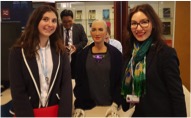 likeness to an incredible degree. This was an extremely bizzare experience- I was speaking to metal and plastic as if it were a human.
likeness to an incredible degree. This was an extremely bizzare experience- I was speaking to metal and plastic as if it were a human.
I was able to converse with Sophia about an AI project that a team of us are working on at school. This is a topic that not many people can understand, yet Sophia did so with ease. I was fascinated to see how she made different facial expressions to convey different thoughts, and to react to what I was saying. Little things like these are what make robots appear more human-like. It is very shocking to see how far, and how quickly we have advanced with technology. In 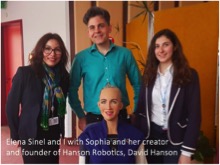 the space of 20 years so much has drastically changed and so much is readily available at our fingertips which beforehand was nonexistent, and seemed inconceivable, even such as the introduction of the smartphone which we are so used to seeing. I am very excited to see what the future holds with the advancement of Artificial Intelligence, and technology as a whole.
the space of 20 years so much has drastically changed and so much is readily available at our fingertips which beforehand was nonexistent, and seemed inconceivable, even such as the introduction of the smartphone which we are so used to seeing. I am very excited to see what the future holds with the advancement of Artificial Intelligence, and technology as a whole.
Overall, this was one of the best opportunities I have been able to have had, and I owe all my gratitude to Elena Sinel for making this happen. She has changed my life forever, and now I will never go back. She has also helped me to realise how important it is to simply talk, and tell the world all about the great things that are happening, and that are in store for the future. I hope that my speech influenced people listening to ponder the future of education, and to involve people like me in that discussion. Next time, I would like to see more young people representing the future of AI for Good.
Also published on Medium.
